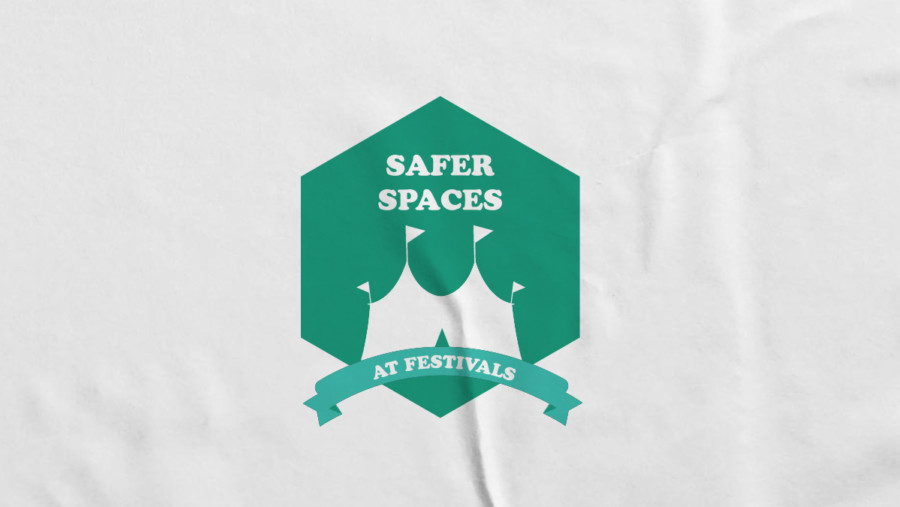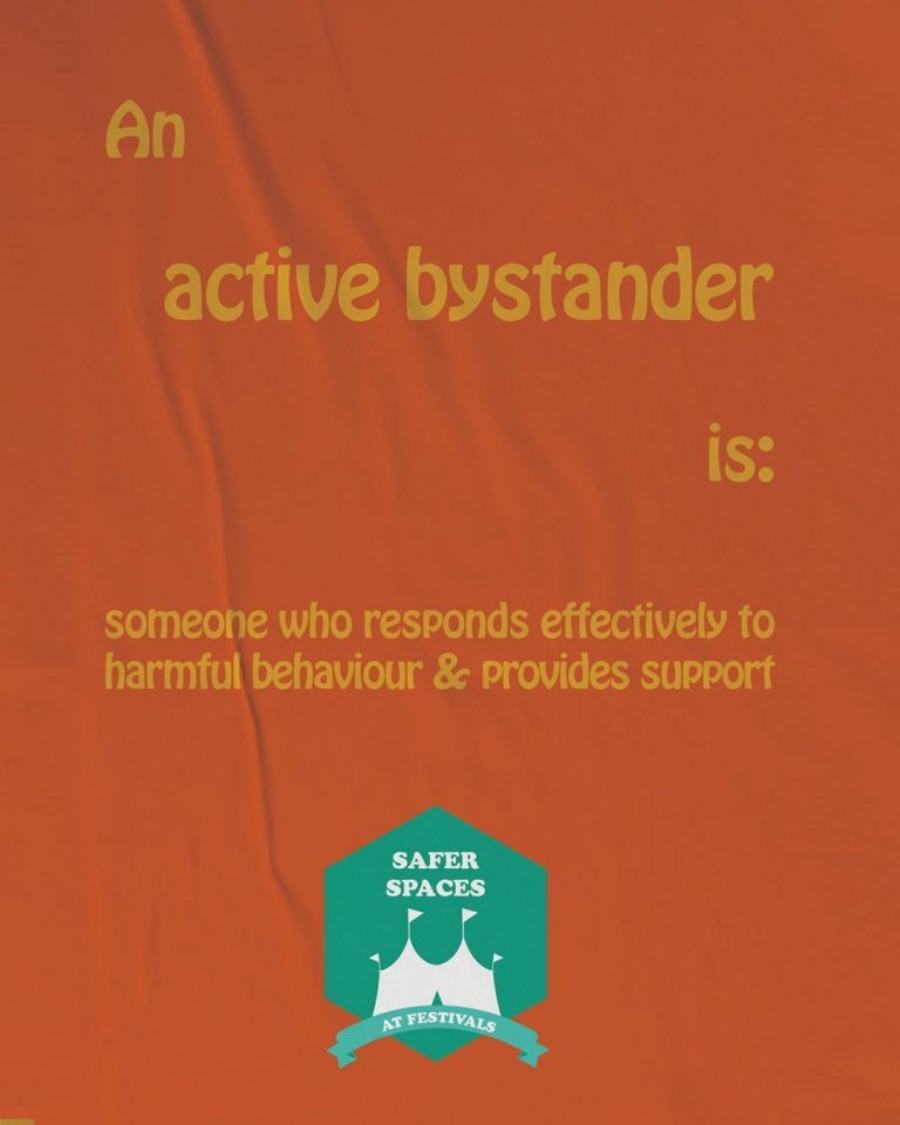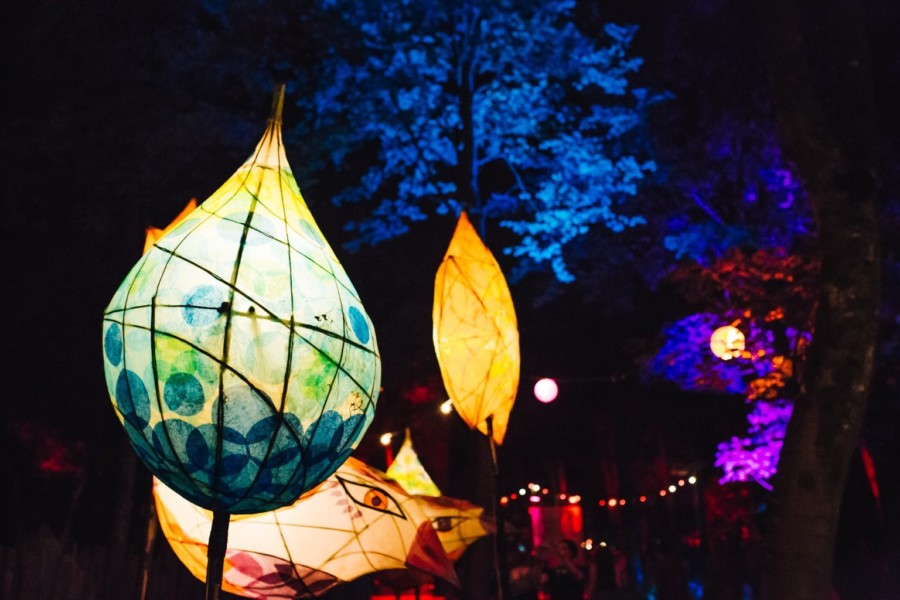Festivals should feel safe and diverse. All party-goers can play a part in modelling a culture where everyone’s festival experience is valued and no one is made to feel uncomfortable.
Zero-Tolerance to Assault & Harassment
There is a rising movement globally to support positive change and acknowledge the experiences of those who are more at risk from incidents of sexual assault and harassment - typically, but not exclusively, women.
All Festivals have a zero-tolerance policy towards any kind of sexual assault or harassment. There is no evidence to suggest that more of these incidents take place at festivals, but organisers take this issue incredibly seriously in their planning and practices. This includes the provision of welfare services, 24 hour security on campsites and arenas and close working relationships with police and other relevant agencies.
If you or any of your friends experience any kind of sexual assault or harassment you should report it immediately and know that it will be taken very seriously by police and event organisers.
Consent
Consent means agreeing to do something. When it comes to sex, this means someone agreeing to take part in a sexual activity. Any form of sexual contact without consent is illegal whatever the age of the people involved. If you do not give consent and a person still engages in a sexual act, this is sexual assault or rape. Remember you shouldn’t ever feel pressured into any kind of sexual activity. It’s ok to say no or change your mind. (Read more about understanding consent and sexual health here).
Safety and protection are important (read more about how to avoid crime at festivals here), but there also needs to be a focus on the cause and prevention of harassment and assault.

AIF Safer Spaces at Festivals
The Association of Independent Festivals Safer Spaces At Festivals campaign and charter of best practice relaunched in May 2022 to tackle sexual violence, harassment and assault at festivals. Over 100 festivals have signed up to the charter which states that all allegations of sexual harassment, assault and violence will be taken seriously, acted upon promptly and investigated.
The Safer Spaces campaign also encourages festival goers to play an active role in promoting safety by being an active bystander.

The 5 Ds of how to be an active bystander:
- DIRECT - directly intervene in the situation
- DISTRACT - take an indirect approach to deescalate the situation and interrupt what is happening
- DELEGATE - get help from someone else to intervene
- DOCUMENT the situation as it is happening
- DELAY - after the incident has happened check in with the person who was harmed.
Enough is the government’s campaign aimed at tackling all forms of violence against women and girls. Visit gov.uk/enough to find out how to intervene safely if you witness any form of violence against women and girls, or how to get support or report if you have been a victim. There is also advice for individuals who may be worried about their own or someone else’s behaviour.
Creating a Culture of Respect
Within a festival community we should all help model a culture of respect. We can do this by looking out for each other and being aware of how our own behaviour can, sometimes unintentionally, make others feel.
- Be a friendly face in the crowd - if you see someone being objectified, harassed or looking uncomfortable with another’s behaviour, ask if they are ok.
- Respect personal space – for example in a crowd you may be standing very close to people, but keep your hands to yourself.
- Say ‘excuse me’ if you are moving through a crowd rather than just pushing or putting your hands on people.
- If you are moving into a small space that’s already occupied ask is it ok if I sit/stand here?'.
- In conversation, respect verbal and bodily clues about whether someone wants the chat to continue.
- Don’t flirt with someone who isn’t showing any interest.
- Only engage in ‘sexual banter’ if you are certain it will be found amusing and with people you know well.
- Don’t stare at people - it can feel unsettling and intimidating.
- Keep your mates in line - if someone you’re with behaves inappropriately, don’t just keep quiet.
- Festivals are a place to make new friends but recognise that if a stranger is wary of you, it’s not personal. Some people are not always immediately comfortable with people they don’t know.
- When walking behind people on their own at night, leave a bit of distance. The closer you are, the more threatening you may seem.
- Be sensitive to the fact that when people are intoxicated, things can sometimes be taken the wrong way.
- If you are feeling upset and need to talk, visit the welfare team who can offer confidential advice and support.

Spiking
Spiking is when someone puts alcohol or other drugs into a person’s drink or body without their knowledge or consent.
Even if someone has been consensually taking alcohol or other drugs, spiking is never ok and never the victims fault. All blame and shame lies with the perpetrator.
Why are people spiked?
Someone may be spiked by an individual who is trying to incapacitate them in order to commit a crime including sexual assault or robbery.
According to the Sexual Offences Act 2003 spiking someone with the intention of overpowering them to enable sexual activity is a serious criminal offence which carries a prison sentence of up to 10 years, whether or not an assault actually took place. Read more about crime at festivals.
People are sometimes spiked by their friends as a prank or because they think they are doing them a ‘favour’ by giving them drugs.
You should never covertly give a friend alcohol or other drugs without their consent. This can be extremely dangerous.
- You don’t know what other substances they have already consumed, therefore there is a risk of overdose or a making them seriously ill.
- Intoxicating someone without their knowledge can leave them very vulnerable.
- They may have to drive later or have drug/alcohol testing as part of their job.
- They could be on other medication that interacts badly with alcohol or other drugs.
How are people spiked?
Spiking can happen in a number of ways:
- By giving someone alcohol or more alcohol than they were expecting without their knowledge.
- By putting a drug (illegal or prescription) in their drink.
- By giving someone a drug but pretending it’s a different substance that would have a different effect. For example offering someone a line of cocaine, but knowingly giving them ketamine.
- Injecting someone with a drug without their knowledge or consent.
There has been a lot of media coverage about injection spiking in recent months, but there is very little evidence to suggest this is widespread or commonplace. Alcohol is still the most common substance used to spike people.
How can I tell if someone has been spiked?
Common symptoms of spiking include:
- feeling or being sick;
- feeling drunk when you have consumed little to no alcohol;
- feeling confused or disorientated;
- feeling sleepy;
- blurred or slowed vision, or trouble seeing properly;
- loss of balance or coordination;
- having trouble communicating;
- having hallucinations;
- acting strangely or out of character;
- difficulty breathing;
- loss of bowel or bladder control;
- sudden body temperature change that could be signalled by sweating or chattering teeth;
- waking up with no memory, or missing large portions of memories.
These symptoms can come into effect within 15 minutes, depending on what a person has been spiked with. Symptoms can last for several hours.
It’s important to remember that someone may experience these symptoms if they have consensually taken alcohol and other drugs, therefore they are not always a sign that someone has being spiked. Read more about how to reduce harm when taking alcohol and other drugs.
If you think someone has been spiked:
- Avoid taking more alcohol or other drugs.
- If someone is seriously unwell, immediately take them to the medical tent or ask a member or security/a steward to radio for medics.
- If you think a friend has been spiked, don’t let them go off with people they do not know. Stick together and look after them.
- If you think you have been spiked, ask a trusted friend to come with you to the welfare or medical tent as soon as possible.
- If you are on your own and feel vulnerable, find a member of the security team, a steward, the police or member of staff with a radio and ask them to contact the welfare team for you.
- It is better to ask for help from someone working at the event. Don’t go anywhere with a stranger or someone you don’t know well.
- If you feel threatened you can ask for help by approaching bar staff. They may be running the Ask for Angela scheme. This code-phrase indicates to staff that you need help and a trained member of staff will then support and assist you.
- If someone you don’t know says they have been spiked, take them to the medical or welfare tent - don’t leave them on their own until you know they are being looked after.
Spiking someone with drink or drugs without their consent or knowledge is a crime. As soon as the individual concerned has received medical support, report the incident to the police (either on site, or at the local police station). It’s really important to do this quickly so that evidence can be preserved and steps to identify the perpetrator can commence. If you have taken drugs voluntarily, please do not let that be a barrier to reporting.
At some events test kits may be available that can identify certain substances that are commonly used to spike people. If you are worried you have been spiked they may be able to provide one of these, however most kits only test for a restricted range of drugs and it is possible that a positive result may be missed.
Ways to reduce the risk of being spiked:
- Always buy your own drink and watch it being poured.
- Don't accept drinks from strangers.
- Never leave your drink unattended while you dance or go to the toilet.
- Don't drink or taste anyone else's drink.
- Dispose of your drink if you think it tastes odd.
There are a number of products that you can buy which claim to reduce the risk of spiking. Some events may have these available on site but you can also buy and bring them with you.
StopTopps are versatile drink-protectors that have been designed to deter drink-spiking. They are single-use foils that can be put over a drink, and are suitable for any drinking vessel including cans, bottles and glasses.
These products can be useful, but remember the most important thing is to stick with your friends, have a buddy system and look after each other. If it’s your first time at a festival, read more about what to expect and how to stay safe.
Drug Facilitated Sexual Assault
Drug facilitated sexual assault can occur when someone is spiked with the intention of committing a sexual crime or when a perpetrator takes advantage of someone’s vulnerability when they have consensually taken alcohol or other drugs, but are unable to consent to sexual activity. This can happen in a number of ways:
- Initiating sexual contact with someone when they are very intoxicated, and less likely/unable to give consent or resist (read more about understanding consent).
- Pressuring someone to take more alcohol or other drugs than they want to or pressuring them to take a substance they don’t want to.
- Refusing to tell someone what is in their drink, what drug or dose of a drug they are taking.
Sexual assault is never ok. If you or any of your friends experience this kind of behaviour you should report it immediately and know that it will be taken very seriously by police and event organisers. It doesn’t matter if you have chosen to take alcohol or other drugs, you will be listened to and given the support you need.
Reporting Issues
Over 100 festivals have signed the Safer Spaces at Festival Charter and are committed to delivering a safe environment for customers, staff and performers. This includes taking every allegation of sexual assault or violence seriously and taking a survivor-led approach that is underpinned with policies, procedures and training.
Festival organisers take reports of assault, harassment and spiking at events very seriously. If you experience this kind of behaviour, you should report it and feel confident that you will be believed and supported.
You can report incidents to any of the following on site at events:
- Police Officer
- Member of the Security Team
- Welfare Staff
- Medics
- Event Stewards
If you experience a serious assault, whoever you report this to should escalate it immediately to the event management team who can contact the police.
The festival welfare team will have trained, caring professionals on site who can support anyone who experiences assault or harassment.
Useful Links
Questions?
All festivals have slightly different rules. If you have any questions you should contact the organisers of the event that you are going to. Visit the event website for details of how to get in touch.
Festival Safe is aimed at people heading to UK festivals. Much of the information you'll find here will be useful wherever your event is being held, but if you are heading to an overseas event remember that rules, and in particular the law, can be different in other countries.

